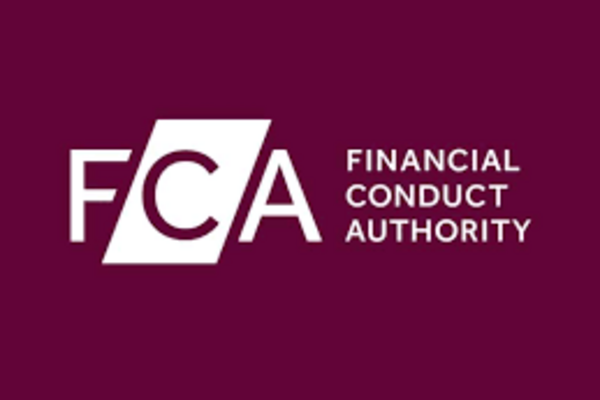Challenger Banking APPG calls for a new financial services Big Bang to drive Levelling-up
The APPG on Challenger Banks and Building Societies has called for bold moves by the incoming government to drive levelling-up through financial services reform.
The APPG on Challenger Banks and Building Societies is today publishing its report on the role financial services can play in driving the levelling-up agenda.
It highlights regulatory intransigence which holds back challenger institutions and stifling competition. Furthermore, the report finds that the major high street banks remain insulated from the forces of competition and an obsession with preventing failure among regulators has made it impossible for challenger institutions to complete with the major banks on a level playing field.
The report’s recommendations include using the current Financial Services Bill in Parliament to deliver a Financial Services Big Bang, to break the restrictive regulatory practices which enshrine the dominance and market share of the major high street banks.
It also calls for the breaking the chains of excessive regulation which disproportionately impact growing challenger institutions, and the levelling-up of regulatory thresholds like MREL which are set far lower in the UK than elsewhere in the world and serve as a disincentive for growth and innovation.
The APPG recommends that the Government takes steps to accelerate the growth of Fintech and argues for better Financial Education in schools, at both Primary and Secondary School level to help people across the UK make better financial decisions.
Rt Hon Karen Bradley MP, Chair of the APPG on Challenger Banks and Building Societies commented:
“Levelling-up is a key Government priority and the current cost of living crisis only serves to reemphasise how important it is. Financial Services providers can play a big role, but overly cautious regulation is holding them back.
“Regulators fear of failure means many are forced to operate with one hand tied behind their back and this doesn’t have to be the case.
“Both Conservative leadership candidates have been clear that they want to make big, bold policy decisions. The recommendations outlined in this report are easy to implement within the current Financial Services Bill, are cost-neutral, and have the potential to deliver real and lasting change to Communities across the UK.”
Dan Frumkin, CEO at Metro Bank, added:
“Levelling-up must move beyond merely being a slogan, especially given the current tough economic climate. If done right, channelling fresh investment, finance and opportunity will change the fortunes of whole communities. Challenger banks and building societies, including community banks like Metro Bank, stand ready to play a significant role in this – yet our potential continues to be held back because rules and regulations aimed at de-risking the UK’s biggest banks actually prevent challengers from growing and shaking up banking for the better. I hope that this report kick-starts debate on improving these rules and opening the path to growth.”
Key Recommendations:
Recommendation 1:
Time For a New Big Bang
A lack of effective competition in the UK banking sector means poorer availability of lending for both consumers and small businesses, particularly outside London and the South East, which acts as a significant brake on levelling-up the economy.
While the APPG welcomes the new secondary objective to facilitate growth and competition in the Financial Services and Markets Bill, it does not go far enough.
It is time for a new Big Bang to break the restrictive regulatory practices which enshrine the dominance and market share of the big five banks. The Government should use the Financial Services and Markets Bill to drive fundamental change in the UK’s financial sector to make it fit for the 21st Century.
The regulators should be aiming higher than just facilitating growth and competition aiming instead to design a regulatory landscape which will support the growth and development of new building societies and regional and community focused banks as seen in the United States.
Recommendation 2
Break the Chains of excessive regulation
It cannot be right that it is prohibitively difficult to scale a challenger bank or to start a new building society as is currently the case in the UK.
Time and again, when it comes to the regulation of challenger banks and building societies, there seems to be a distinct lack of proportionality in the approach of regulators. It is almost as if the UK’s regulatory authorities would prefer to deal with a few behemoths rather than a competitive panoply of diverse institutions.
While this might suit the regulators and HM Treasury, it fundamentally undermines levelling-up. The Government should level-up the banking sector by forcing banks to offer branches to challengers before closing them. As well as financial incentives for challengers to take over branches and open new ones especially where there are no other bank branches currently.
The regulatory chains – the capital rules which make expanding and starting new institutions – should, for firms headquartered or operating in levelling-up areas, be removed so that it is easier to start and grow firms outside London and the South East.
Recommendation 3
Level-up the UK’s regulatory thresholds so that they match those of our major international competitors.
It is fundamentally absurd to have regulatory thresholds which not only stifle competition in the UK but also make it internationally uncompetitive. The regulatory thresholds need radical revision and rules such as MREL need to be re-written to make the UK and its regions the most competitive place to operate a financial institution.
How can challenger institutions here compete with a £15 billion threshold when in other jurisdictions such as the EU the threshold is €100bn and the United States $250bn? This might make supervision easier for financial regulators, but it is permanently levelling down the rest of the UK and preventing competition in the banking sector from driving innovation and growth.
Recommendation 4
Accelerate the growth of Fintech by enhancing and broadening the open banking model and FSCS style protection for those investing in regulated Fintech institutions.
With the growth of Fintech, the flaws in the open banking model have become apparent. More needs to be done to allow open banking to offer a view of each person’s financial situation.
Furthermore, with the rapid growth of Fintech firms, consumers need to be able to invest with confidence and therefore we would encourage the regulator to establish a FSCS style system for Fintech’s offering consumer access where their money is not protected by the existing FSCS model.
Recommendation 5
Level-up financial literacy in schools and universities and ensure that entrepreneurs across the UK can access advice and funding to start a business.
Financial Education should become a stand-alone curriculum item at Primary and Secondary School level. For a nation that prides itself on being a global hub of financial services, the lack of universal financial education in schools is embarrassing. There is a need for greater awareness of financial services and financial products and jobs in the Financial Services sector across the whole country.
Some of this change can be delivered through the work of fintech institutions and in partnership with banks – banks, including challengers like Metro Bank, are delivering effective and free financial education programmes in schools. But we need to build on this. However, there is a need to level-up education across the UK to those areas where financial services are less of a dominant industry and where financial literacy standards are lower.
Find the article here: https://www.cbbsappg.org.uk/challenger-banking-appg-calls-for-a-new-financial-services-big-bang-to-drive-levelling-up/







